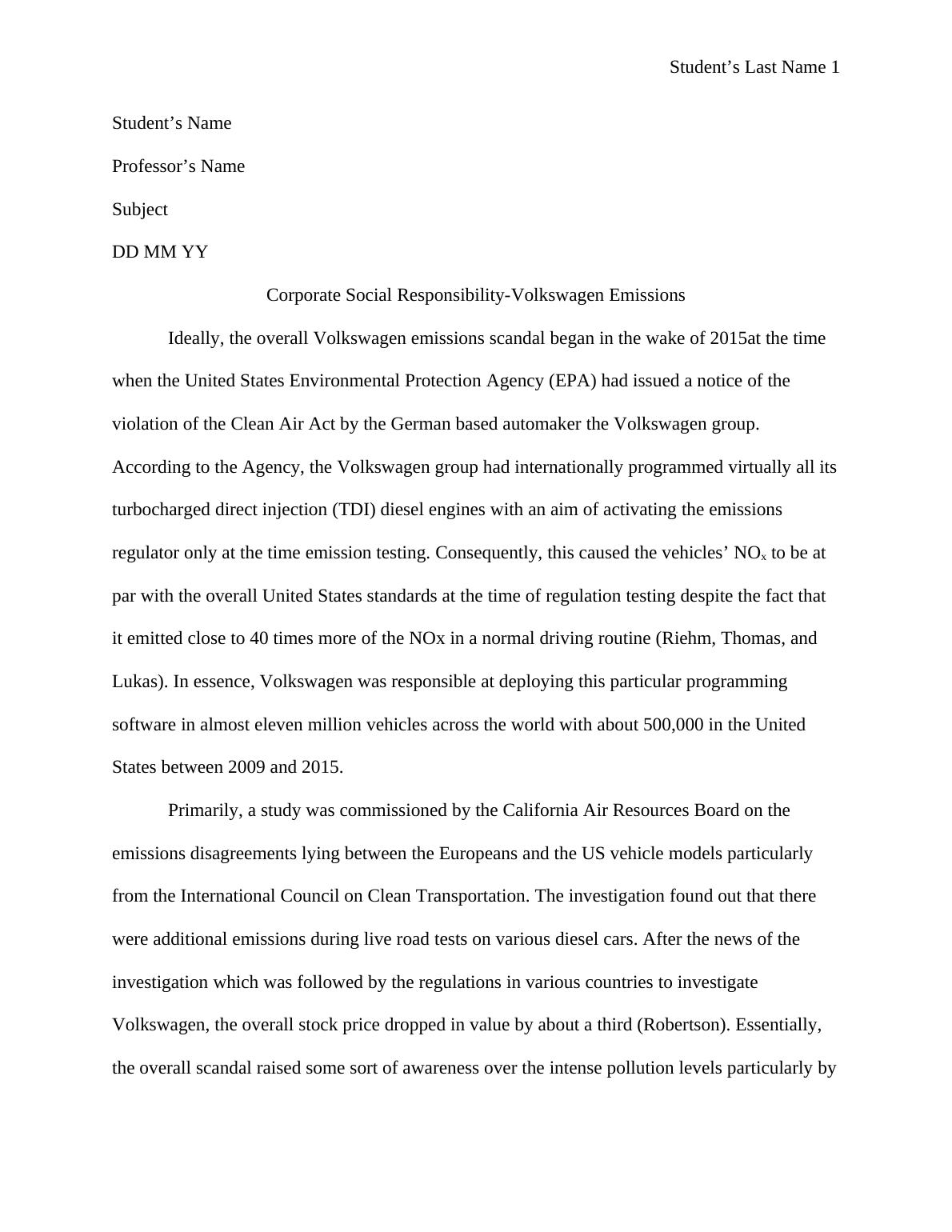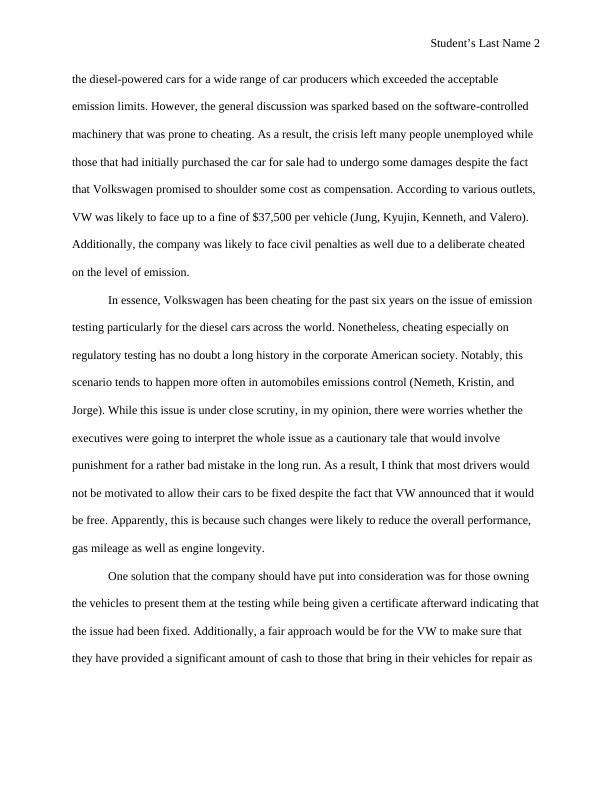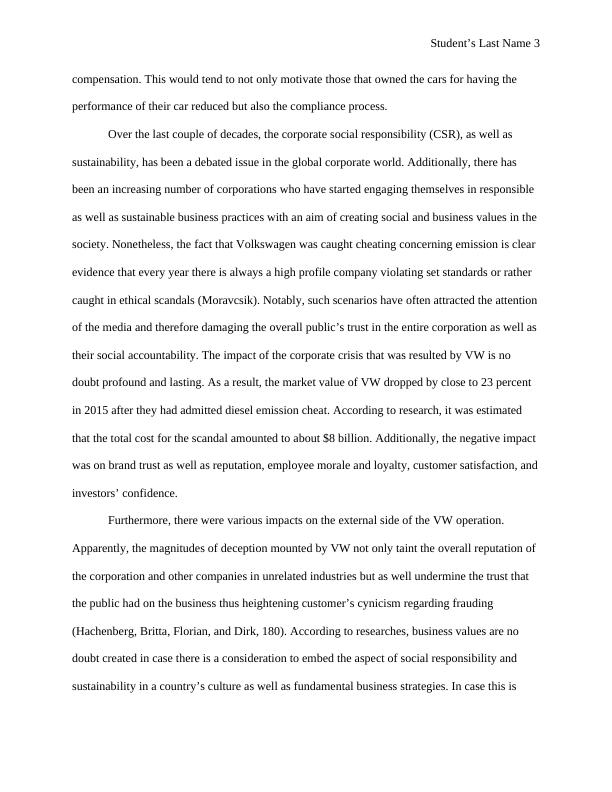Corporate Social Responsibility-Volkswagen Emissions
7 Pages2004 Words358 Views
Added on 2023-05-31
About This Document
This article discusses the Volkswagen emissions scandal that began in 2015 when the United States Environmental Protection Agency (EPA) issued a notice of violation of the Clean Air Act by the German automaker. The scandal had a profound and lasting impact on the market value of VW, brand trust and reputation, employee morale and loyalty, customer satisfaction, and investors’ confidence. The article also discusses the impact of the scandal on corporate social responsibility and sustainability.
Corporate Social Responsibility-Volkswagen Emissions
Added on 2023-05-31
ShareRelated Documents
End of preview
Want to access all the pages? Upload your documents or become a member.
The Volkswagen Diesel Emission Scandal
|22
|6067
|314
Volkswagen Emission Scandal: Management Communication
|8
|2836
|133
Strategic Analysis of Volkswagen Group
|17
|4040
|209
(PDF) The Role of Accounting in a Society
|8
|1818
|367
Report on Volkswagen Marketing
|12
|3322
|177
Volkswagen Scandal: Causes, Consequences, and Steps Taken by the Company
|14
|1059
|243



